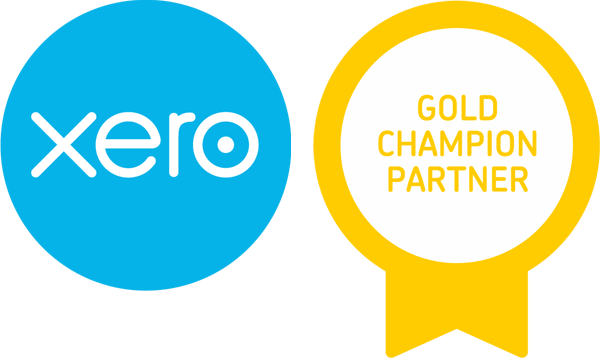Striving for a Mentally Healthy Workplace
Small business owners and employees are increasingly aware of and dealing with mental ill-health in their workplace. This is not surprising given that one in five Australians aged 16-85 have suffered, or are suffering, from mental ill-health. Conversations around mental health disorders can be difficult, or even confronting, for people if they don’t feel equipped with the right skillset. However, small business owners can have a positive impact on the mental health of their staff by providing mentally healthy workplaces.
Some of the benefits of creating a mentally healthy workplace include:
- Thriving workers and owners
- Increased productivity
- Decreased unplanned leave
- Decreased occupational injuries and illnesses
- Decreased workers compensation claims
- Increased engagement and job satisfaction
- Decreased turnover and rehiring costs
- Increased employee loyalty
The National Mental Health Commission has recently released the Small Business Guides for Mentally Healthy Workplaces, which provide information about key topics, clear examples, helpful tips and links to further support and guidance. These guides are built around three main pillars: Protect, Respond and Promote.
Protect
The Protect pillar focusses on protecting the business owner and employees from work related risks to mental health. For the employees, this involves the business owner identifying and managing psychosocial hazards in the workplace. For the business owner, this involves putting things in place to protect their own mental health at work.
Some examples of possible psychosocial hazards include high workloads and demands, lack of role clarity, insufficient resources, sexual harassment, workplace bullying, low control over work, violence or aggression, and conflict or poor workplace relationships. Small business owners can seek to actively identify these hazards, assess and then identify ways to eliminate or minimise. Elimination or minimisation of risks might be achieved by changing the work environment or work duties, providing more support or training, implementing policies and procedures (with regular check ins on staff adherence to these), educating staff on correct procedures, and rewarding staff for behaviours that support mental health.
There are also many contributors to mental ill-health of small business owners. Research conducted indicated that some of the common strains on a small business owners include:
- Working long hours
- Feeling obligated to work when sick
- Financial stress
- Business profitability and survival
- Having multiple responsibilities
- Finding and retaining customers
- Managing employees
Some preventative measures that business owners can implement in order to help reduce every day stress include:
- Planning for unexpected events (losing data, fire, robbery, owner sickness, lost premises etc.).
- Reducing financial stress (keep good records, prioritise debt, budget, actively collecting debt, seek help where required).
- Managing competing priorities (understand daily tasks, schedule tasks/meetings, concentrate on one thing at a time, set time limits, prioritise and set boundaries).
- Managing burn out stress.
Respond
The Respond pillar is aimed at helping small business owners:
- Identify and respond to an employee experiencing mental ill-health or distress.
- Support themselves or other people to stay at work or return to work during periods of mental ill-health.
- Implement strategies to support themselves if they are experiencing mental ill-health.
- Improve workplace culture through mental health stigma reduction.
Common signs of mental health ill-health that a business owner may need to respond to include changes in behaviour (withdrawn, making more mistakes than usual, late or absent from work, unable to concentrate etc.), certain feelings (overwhelmed, irritable, lacking confidence, unhappy etc.), certain thoughts/statements (“I’m not good enough”, “I can’t do anything right” etc.) and physical features (tired, sick and run down, sleep problems, panic attacks etc.).
Responding to notable changes in employees and approaching them about mental ill-health can be difficult; many small business owners don’t know where to start. However some simple steps can help the conversation. The Respond guide helps guide business owners through this process, additionally the ALGEE mental health action plan is another good approach to consider.
In terms of helping staff member stay at work throughout periods of mental ill-health some adjustments could be considered:
- Flexible working hours
- Working from home
- Adjusted workload
- Modified tasks
- Time management tips
- Regular check-ins
Small business owners can also put strategies in place to help themselves through periods of mental ill-health. Some of these might include:
- Building extra time into job estimates to help reduce stress.
- Setting up automated emails.
- Training their team in day to day business essentials.
- Creating a “cheat sheet” about the operation of their business.
- Using a password manager.
- Making a plan for periods of absence.
There are also things that a small business owner can do ensure that the workplace culture is conducive to someone with mental ill-health returning to work. Reducing the mental health stigma in the workplace is an important part of this. This might involve:
- Learning the basics of mental health and encouraging staff to do so too.
- Being equipped with basic response skills.
- Using appropriate language when talking about mental health.
- Challenging false beliefs.
- Normalising mental ill-health by displaying information and participating in mental health campaigns.
Promote
The third pillar is Promote, which concentrates on promoting mental health in the workplace. This involves recognising and enhancing the aspects of work that make employees and business owners feel good. This will help staff members to thrive and can also have a positive impact on business performance through decreased absenteeism, increased productivity, improved staff engagement and higher staff retention rates. Some simple things that a business owner can implement to help promote mental health in the workplace include:
- Providing recognition and rewards for good work.
- Providing opportunities to shape work.
- Promoting social connections at work.
- Improving workplace culture.
- Promoting inclusion and diversity.
- Providing staff with autonomy and control over their work.
It is also important for the business owner to look after and promote their own mental health. This could involve prioritising small but regular time slots to exercise, setting healthy boundaries between work and home, and allowing time to sleep and eating healthy. Planning and budgeting for holidays is also important, to ensure that a break from work is achieved with time to unwind and recharge. Building a support network and having regular social connections, whether is with other business owners or existing friendship groups, is also recommended. This enables the business owner to connect with others, buffer the impacts of stress and have a supportive network to lean on through times of mental-ill health.
While owning a small business can be stressful and time restrictive, it is also important to reflect on the positive aspects of owning a business. These might be that it connects the business owner to the community, provides autonomy and freedom, allows for creative control, provides the ability to do something that they enjoy or are passionate about, or gives them direct benefits from hard work.
This article provides a brief summary of some actions and workplace practices that a small business owner might consider when looking to build a mentally healthy workplace. There is much more detail, ideas and helpful materials contained in the Small Business Guides for Mentally Healthy Workplaces, which can be downloaded from this website: www.haveyoursay.mentalhealthcommission.gov.au/small-business-guides-to-mentally-healthy-workplaces
If you need help to prepare a budget for your business or to assess the financial performance of your business please contact Jenna van Nierop, who is also an Accredited Mental Health First Aider, on 9842 5155 or Jennav@smiththornton.com.au.




